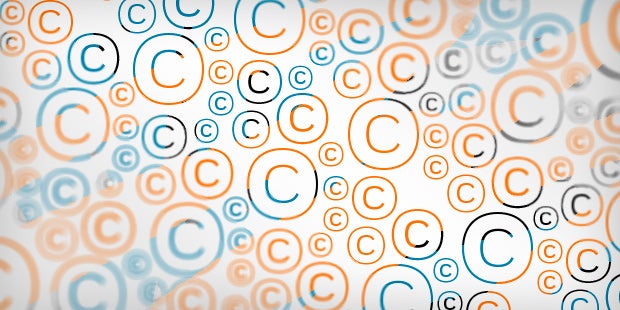2016 is poised to be the year of the largest overhaul to copyright law in nearly half a century, as members of Congress, the House Judiciary Committee, and other government agencies undertake a comprehensive review of the current copyright landscape.
The last major revision to copyright law came with the Copyright Act of 1976, and included such significant changes as extending the term of copyright to the life of the author plus fifty years, and codifying the fair use doctrine. Today, the anticipated changes come in response to an evolving digital landscape and the challenges of applying laws and policy enacted prior to the advent of new media.
While the exact future is unknown, meaningful legislation relating to copyright is expected in 2016 and beyond, and will have implications for the publishing industry. A recent report prepared by the advocacy organization American Continental Group shines a light on some of the activity that could influence decision makers. Keep reading for a brief summary of recent developments.
A Comprehensive Review of Copyright in the House
The House Judiciary Committee began a comprehensive review of current copyright policy in 2013 in light of the changes in the marketplace and newly ubiquitous digital delivery options. The committee will work on a variety of relevant topics, including the role of copyrights and voluntary agreements, the scope of copyright protection and fair use, the first sale doctrine, and access to copyrighted works.
Resulting legislative proposals addressing these issues are expected to begin later this year and could include definitive guidance regarding the resale of digital works, including ebooks.
Copyright Office Modernization
The Copyright Office has faced criticism in recent years relating to its ability to respond to an evolving and expanding marketplace. The office, which is a department of the Library of Congress and maintains the world’s largest database of copyrighted works and copyright ownership, has recently released its Strategic Plan 2016–2020, addressing how it plans to adapt. According to the register of copyrights, Maria A. Pallante, “The Plan sets forth a road map for re-envisioning almost all of the Copyright Office’s services. . . . Such broad-ranging modernization efforts are needed to meet the changing needs of individual authors, entrepreneurs, the user community, and the general public.”
Through modernization, the office hopes to streamline existing processes to make it simpler and faster to secure rights, and to make ownership and permissions data more easily accessible in order to steer users toward proper permissions requests rather than infringing uses.
Key Studies from the Copyright Office
In addition to its internal review, the Copyright Office will also proceed with multiple studies touching upon a variety of areas of copyright law. Two key studies include:
- The Mass Digitization Study, already in progress, examines the complex issues arising out of mass digitization of copyrighted works and orphan works (those works for which the rights holders are not able to be identified or contacted). It seeks to better understand ongoing mass digitization projects throughout the world and to establish new frameworks to help protect rights holders and noninfringing uses.
- Section 512 Safe Harbor Study: Section 512 of the DMCA sets limitations of liability for service providers that make infringing material available online. In addition, Section 512 outlines the notification and removal processes for infringing works, known as the DMCA takedown process. The study notes that when the DMCA was enacted in 1998, “less than 5 percent of the world’s population used the internet,” and Congress did not anticipate the millions of takedown notices that are now sent each day, or the associated costs and burdens placed on copyright owners. The study seeks to reexamine the efficacy and fairness of this process in the modern world, as well as how well Section 512 addresses online infringement in general. (As a reminder, you can submit your own DMCA takedown notice request via the Author Portal anti-piracy tool here.)
Department of Commerce Papers
In 2013, the Department of Commerce’s Internet Policy Task Force released a green paper (you can read a summary of the paper here) on copyright policy, calling for public input. Last month, the task force issued a follow-up White Paper on Remixes, First Sale, and Statutory Damages. The paper contains recommendations relating to calculations of statutory damages and how the fair use doctrine applies to the creation of remixes; it specifically notes that the task force will not recommend that the first sale doctrine—which allows the owner of a physical copy of a copyrighted work to resell the work without permission from the copyright owner—extend to digital works, citing potential harm to the primary market.
Copyright sits at the core of all creative industries. The protections afforded and the rights granted to authors of original works—including literary, performance, musical, visual, and certain other creative works—enable authors to dedicate their lives to their work, and help foster a rich and vibrant culture. But without up-to-date laws to enforce these rights and protections, such a culture is put at risk. As with any area of the law, copyright law must adapt to fit the times it serves in order to preserve its original spirit. Your Penguin Random House publishing and legal teams will continue to monitor the copyright landscape and how it may affect you and your work.
Emily Condlin works in the legal department and on cross-departmental corporate projects at Penguin Random House.


